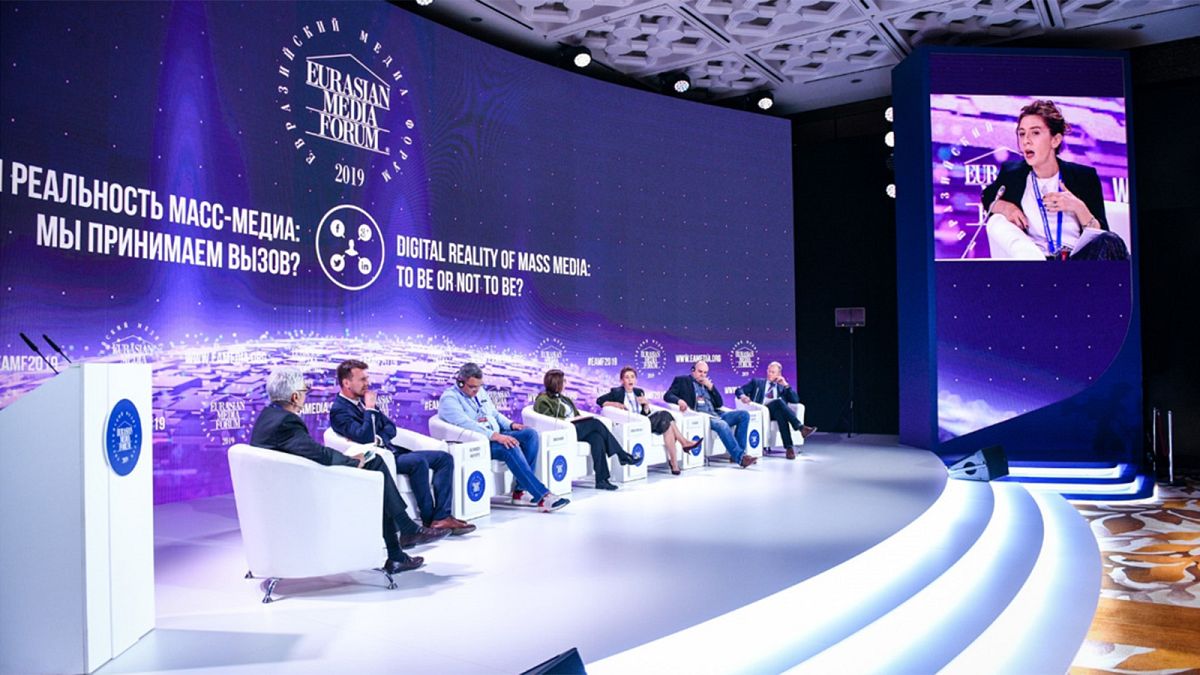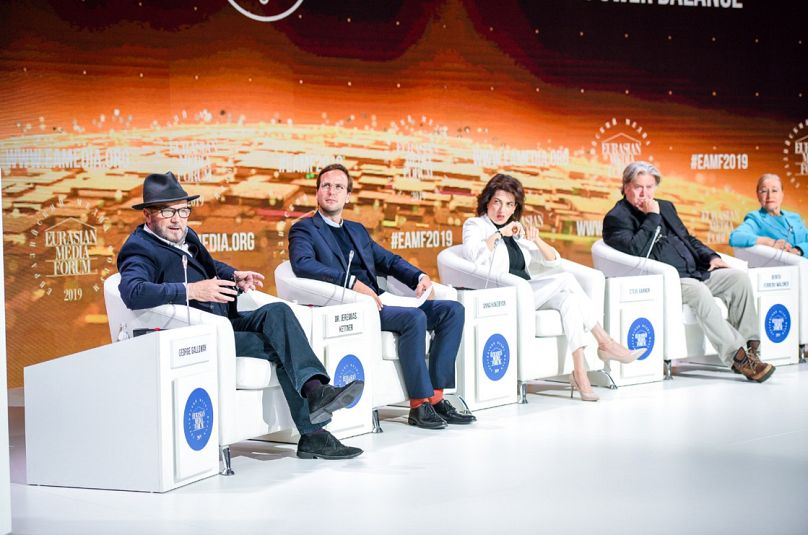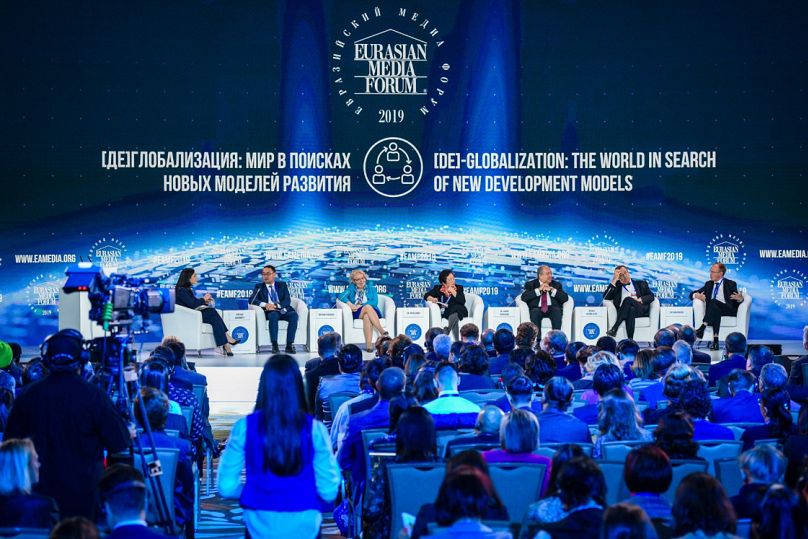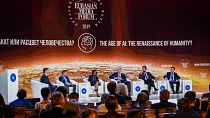‘The world today: Transforming reality?’ The theme for the 2019 Eurasian Media Forum poses a big question. The summit, taking place on 22nd to 24th May in Almaty, Kazakhstan, digs deep into the key issues facing the media today.
Now in its 16th year, this international discussion forum gathers over 600 delegates from 42 countries for international discussion, inspiration and new ideas. Kazakhstan is a natural bridge between East and West due to its unique position at the corner of Asia, Europe, and the post-Soviet region. By gathering politicians, journalists and experts from all these regions, the Eurasian Media Forum puts the country firmly on the map. Fostering understanding across regional and cultural borders was the key motivation for Dr Dariga Nazarbayeva when she founded the Forum in 2002.
The Forum doesn’t shy away from controversy: Steve Bannon, the former election campaign strategist for US President Donald Trump, is appearing on stage to discuss global power balances. Joining Bannon is Mark Siegel, former director of the US National Committee of the Democratic Party from 1973 to 1977, and George Galloway, the British politician and former Member of Parliament.
Key to this year’s Forum in Kazakhstan is the big question about deglobalisation, power imbalances, and lack of trust. In Central Asia, Kazakhstan and its neighbouring countries are reaping the benefits of regional integration, continuing to pool their resources for the common good. Alongside its neighbours Kyrgyzstan, Tajikistan, Turkmenistan and Uzbekistan, Kazakhstan is working to improve labour productivity, anti-corruption policies, public administration, education, and tourism. As a central hub, Kazakhstan is committed to developing regional trade and advancing transport links, and improving conditions for business and international investment. The Forum delved deeper into how to best create a union that will further the growth of the region's economies.
In the West, however, the trend is going the other way: rather than joining forces, countries are withdrawing from international collaboration. The US has demonstrated isolationist tendencies with actions such as withdrawing from the UN Human Rights Council and the Paris Agreement on climate change, while Britain’s Brexit continues to send ripples across Europe. The Forum will discuss how events such as these have international repercussions, and how the media can further healthy, accurate debate as we try and make sense of what's happening. Is the globalisation era over? As we face this ongoing global crisis, what are our prospects?
The Eurasian Media Forum is a space for opposing views to meet in healthy debate, complemented with lively audience involvement, all moderated by professional TV presenters. John Defterios, journalist and anchor at US news channel CNN, and Ghida Fakhri, presenter at Turkish national TV station TRT and the Qatari discourse programme Doha Debates, are both bringing their industry expertise.
Economic trends, environmental threats, and the future of marijuana legalisation are all on the table - no topic is too controversial. Does blogging and social media represent a new and exciting way for people to communicate outside of the traditional media structure, or does it enable a dangerous trend of false information to spread? Is artificial intelligence a fundamental threat to the future of humankind, or do the benefits outweigh the risks? As the world is rapidly changing, people and countries are looking for new models to guide us as we discover what it all means.
Over the years, more than 1,500 global media representatives have attended the Eurasian Media Forum, including Bloomberg, the BBC, Euronews, Associated Press, CNN, Al Jazeera, The New York Times, Reuters, and Russia Today. Kazakhstan wants to be a bridge where people who may not see eye to eye can meet and find common ground, based on a fundamental belief that sitting down together and talking is how we shake off our presumptions, and let the stereotypes fall away. This way, the Eurasian Media Forum aims to be a place where people can discover new ways of thinking, and look at the world anew.



